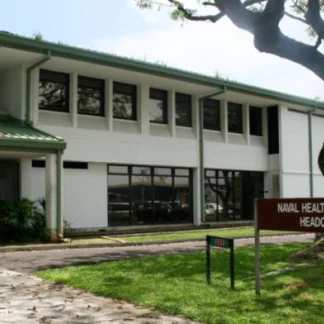Kokua Kalihi Valley - Comprehensive Family Services
Kokua Kalihi Valley - Comprehensive Family Services is an outpatient alcohol and...
The Naval Health Clinic provides outpatient mental health care to active duty US Navy, Marine Corps, and Coast Guard personnel only. The Naval Health Clinic refers dependents to civilian therapists with payment through the TRICARE program or to Tripler Army Medical Center.
Contact us for more information: (808) 473-0650

Connect with Naval Health Clinic - Substance Abuse by calling their admissions team directly.
(808) 473-0650 Website Get DirectionsThe Joint Commission, formerly known as JCAHO, is a nonprofit organization that accredits rehab organizations and programs. Founded in 1951, the Joint Commision's mission is to improve the quality of patient care and demonstrating the quality of patient care.
Joint Commission Accreditation: Yes
Research clearly demonstrates that recovery is far more successful and sustainable when loved ones like family members participate in rehab and substance abuse treatment. Genetic factors may be at play when it comes to drug and alcohol addiction, as well as mental health issues. Family dynamics often play a critical role in addiction triggers, and if properly educated, family members can be a strong source of support when it comes to rehabilitation.
Group therapy is any therapeutic work that happens in a group (not one-on-one). There are a number of different group therapy modalities, including support groups, experiential therapy, psycho-education, and more. Group therapy involves treatment as well as processing interaction between group members.
Group therapy is any therapeutic work that happens in a group (not one-on-one). There are a number of different group therapy modalities, including support groups, experiential therapy, psycho-education, and more. Group therapy involves treatment as well as processing interaction between group members.
Kokua Kalihi Valley - Comprehensive Family Services is an outpatient alcohol and...
Action with Aloha is a private rehab located in Pearl City, Hawaii. Action with ...
Hina Mauka Teen Care - Pearl City High School provides quality substance abuse s...
Lanai VA Clinic, part of VA Pacific Islands Health Care System, provides primary...